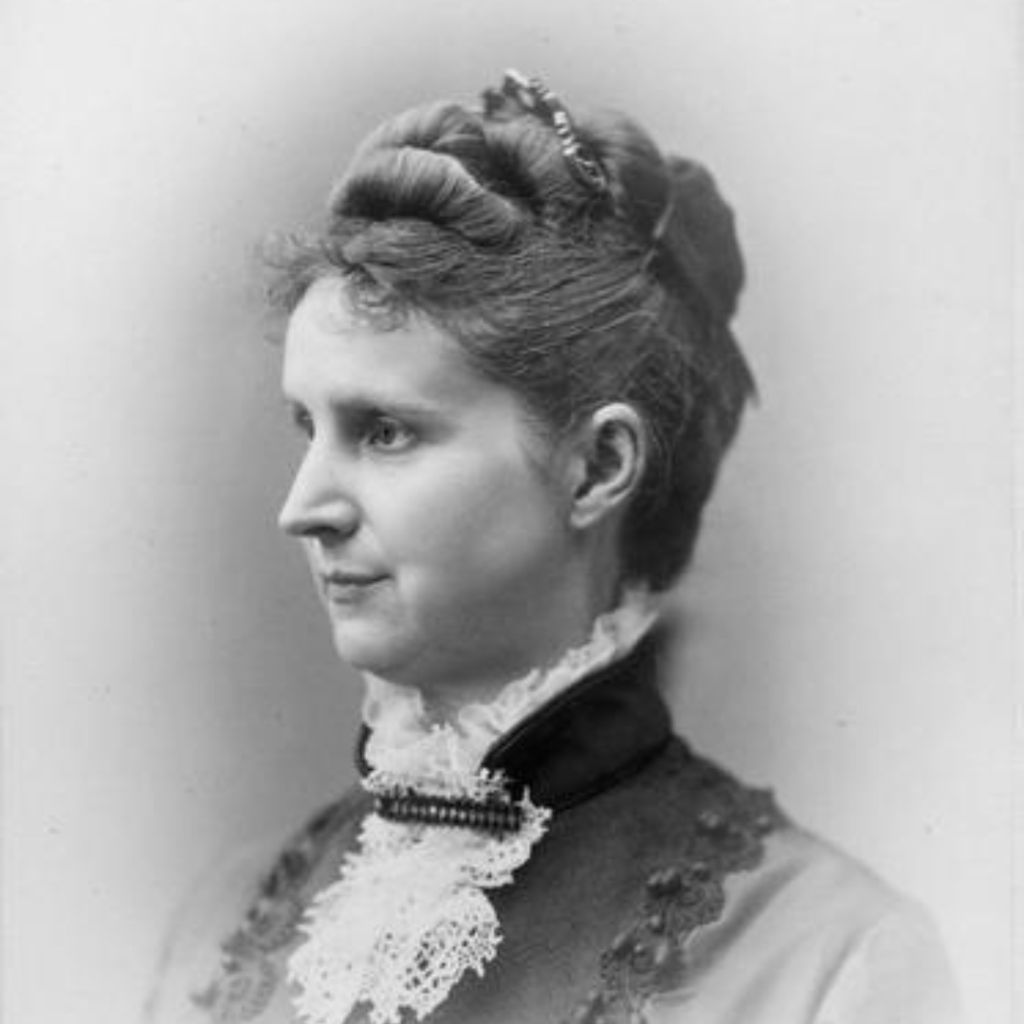Nettie McCormick had a less than ideal start to life. Born Nancy Maria Fowler in 1835, her father, Melzar Fowler, died when she was a month old. Her mother, Clarissa Fowler, then took over the family’s dry-goods business, but she also died in 1842 when Nettie was only seven. Now orphaned, Nettie with her two brothers was taken in by her uncle’s family and grew up in Clayton, New York. Nettie was given a good education (her uncle was a successful businessman) and she then taught for a time in Clayton.
Her life changed when she was 21 years old through a visit to a cousin in Chicago, where she met Cyrus McCormick. Cyrus was twenty-five years her senior and was a wealthy industrialist who had invented the reaper machine which revolutionised agriculture.
It proved to be a formidable business partnership. Nettie was her husband’s closest business associate. Apart from her role as a mother of seven children, Nettie was a skilled business woman who worked alongside her husband, serving for many years as his personal secretary. She was an integral part of many important business decisions.
Her influence and her business ability was especially important in the events following the Chicago Fire of 1871 which destroyed her husband’s agricultural plant. Cyrus’ reaction to the fire was to consider abandoning the business altogether. Then aged 62, he was ready to retire. Nettie however convinced him to start again. She devoted her considerable energy to rebuilding the business, forming a new company which would consolidate the farm machinery industry. Nettie managed her husband’s investments, oversaw the construction of the new plant, and they then formed the International Harvester Company.
Thirteen years later, in 1884, her much older husband died, and Nettie inherited a vast fortune. Orphanages, schools, colleges, hospitals, and relief agencies were all beneficiaries of her generosity, and she supported causes at home and abroad. She gave gifts to institutions such as Moody Bible Institute and Princeton University. She helped establish hospitals in Persia and Siam, and gave large gifts to religious colleges overseas, including Alborz College in Tehran and a theological seminary in Korea.
There are important lessons to learn from this most generous giver:
1. A devout Christian, Nettie believed that her immense wealth made her especially accountable in the eyes of the Lord. She believed she would have to give an account to God for how she had used the money with which she was entrusted. Her writings reveal a woman dedicated to leading a diligent and sober life and to putting her fortune to altruistic use. Her conviction was that the huge wealth that she had inherited was a special gift that God had given to her; she wanted to be a good steward of it. It was not for her; it was for her to use to benefit others. She became one of the top American donors of the 19th century.
2. She was not just generous but also strategic in her giving. She was a firm believer in education, and came to see her mission as one of providing educational opportunity around the globe. The McCormick Theological Seminary in Chicago was the recipient of much of her largesse, but she also contributed to over 40 different educational institutions. She gave generously to missionary work. For over three decades, she served in various capacities on the Woman’s Board of the Presbyterian Mission of the Northwest, including treasurer, vice-president, and honorary vice-president. Her home was a centre of Christian missionary meetings for many years; she even travelled to Egypt in 1896 to check on one of her schools.
3. Though Nettie gave away millions of dollars, she neither expected nor wanted any recognition – in this life, at least. The obituary in the Chicago Daily Tribune grossly underestimated the scope of her philanthropy, crediting her with supporting six schools. In reality, she is known to have been a lead funder of at least 46 schools, and possibly more. The Tribune seems not to have known that!
4. Her early tragedies, the death of her parents did not turn her towards bitterness, but rather she used it to inspire her future philanthropy.
Nettie died at the age of 88 in 1923, leaving behind letters and journals that gave great insight into what inspired her generous spirit. As I write, I am one of many missionaries who have stepped out trusting that the Lord will provide through those who are in a position to give generously. Required reading for such potential donors to mission work might be a comment made by this remarkable and hugely generous woman: “Usefulness is the great thing in life — to do something for others leaves a sweeter odour than a life of pleasure.”
Source: Encyclopaedia.com and Philanthropy Roundtable.


